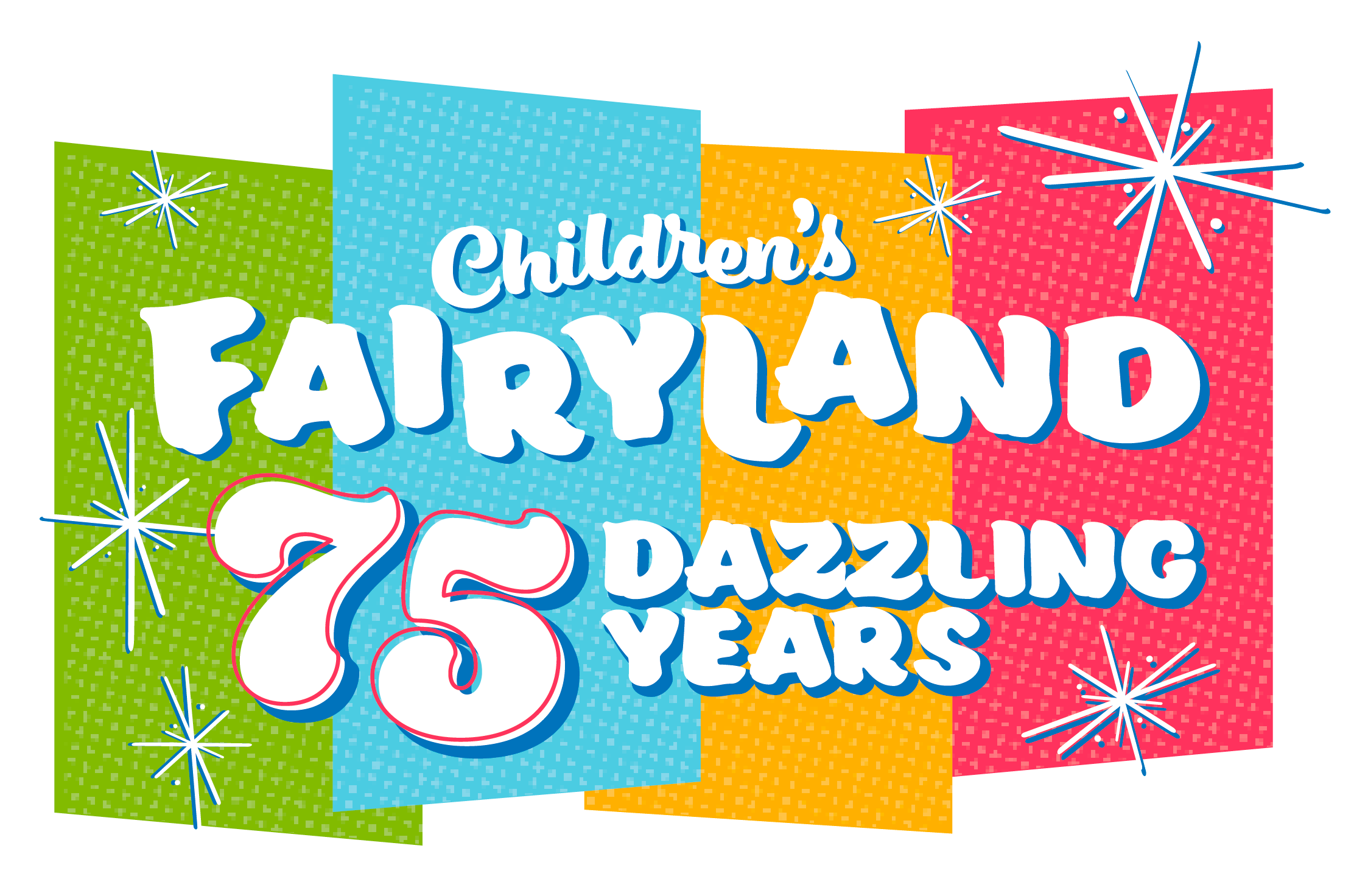Puppet
Shows
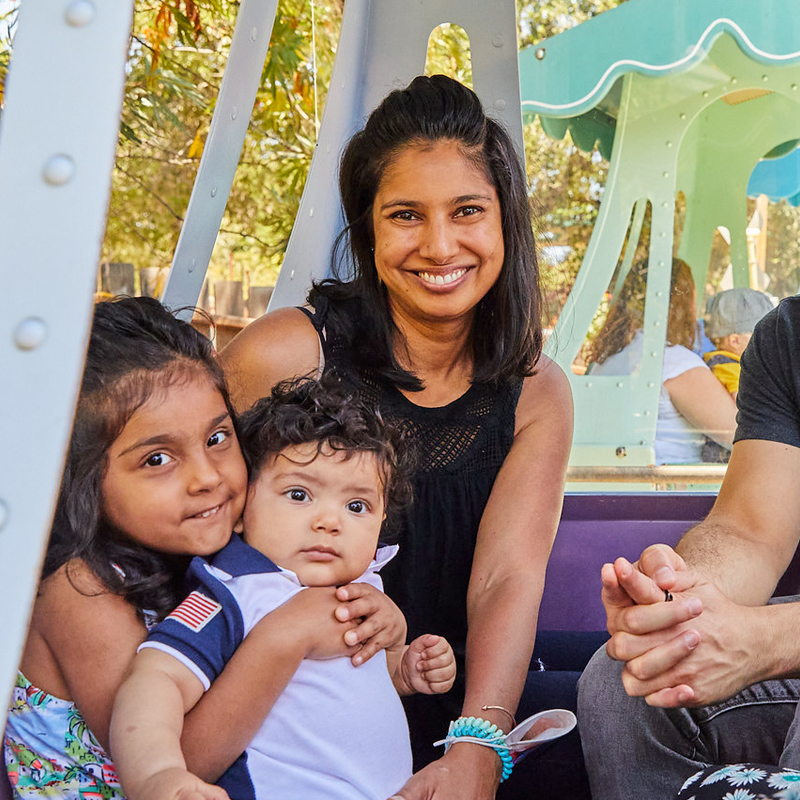
Fairyland’s Open Storybook Puppet Theater
All shows that grace the stage of Fairyland’s Open Storybook Puppet Theater are original productions featuring scripts, costumes, music, and sets designed by our talented puppeteers. Don’t miss a chance to watch a production at the oldest continuously operating puppet theater in the U.S.
Showtimes
11 a.m., 2 p.m., and 4 p.m.
Catch a show every day the park is open!
2025 Puppet Shows
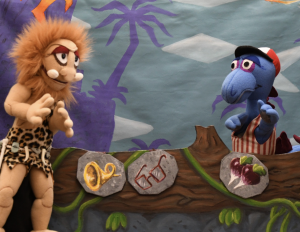
The 3 Dinosaurs Gruff
January 11 – February 2
Description
Granny Brachiosaurus is telling her friend Greta, a Pterodactyl, the tale of three dinosaur brothers: a Stegosaurus, a Triceratops, and a Ceratosaurus who all love to cross a tree bridge each day to nap, eat, and play on the other side. But what will happen when Ugh, a trollish caveman, moves in under the bridge? This show teaches children the importance of working together, problem solving, and getting along. This pre-hysterical comedy pokes fun at the famous “3 Billy Goats Gruff” tale through the use of imagery, music, and songs. A story millions of years in the making! Puppets and script by Randal Metz. Scenery by Warren Moten III.
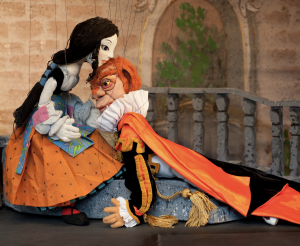
Beauty and the Beast
February 7 – April 6.
Description
Based on the original Charles Perrault classic French fairy tale. This is the story of a prince turned into a wild beast, who learns love and humility through the gentle teachings of a kind girl. Adaptation, puppets, and scenery by Lewis Mahlmann. Puppets designed by Golden Book illustrator Sheilah Beckett and Lewis Mahlmann. Costumes by Francis Oznowicz.
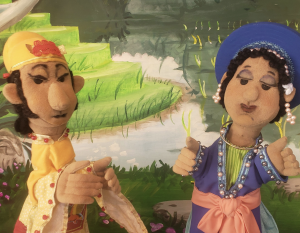
Tấm and Cám
April 9 – May 29
Description
This popular Vietnamese Cinderella tale comes to the Fairyland stage. Tấm, and her half sister Cam live in a quaint village. Tấm’s stepmother hopes her own daughter will marry the King so they can live in luxury.When the King falls in love with Tấm instead, the stepmother’s plans are foiled. She poisons Tấm, and the girl is turned into a lovely songbird. Through good deeds and magic, Tấm is returned to her own form and reunites with the King for a happy ending. Puppets and script by Randal Metz. Scenery by Warren Moten III. With special thanks to Trần Văn Hương and Vina Vo for their invaluable feedback.
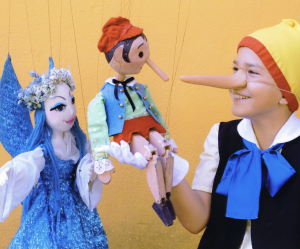
Pinnochio
May 30 – July 10
Description
Carlo Collodi’s beloved puppet character comes to life in the classic telling of Pinocchio, created by Geppetto the woodcarver, who longs to be a real boy. Together with Creeko the cricket and the Blue Fairy, Pinocchio has many adventures, even ending up being swallowed by a whale! Join us as Pinocchio learns many of life’s lessons the hard way. Marionettes and script by Lewis Mahlmann. Scenery done in the style of Commedia Del’Arte by Lewis Mahlmann. Costumes by Francis Oznowicz.
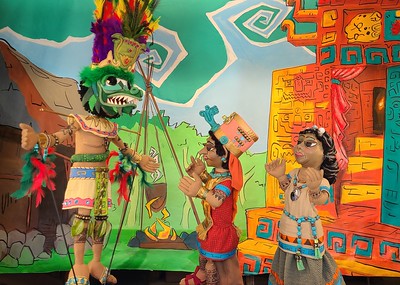
What Makes a King
July 11 – August 24
Description
Based on the tales and myths of the Maya Nation, this unique puppet tale asks the question: “What Makes a King?” Kukulkan, the Plumed Serpent, tells the story of Cadmael, a dwarf child, who has to perform three deeds in order to save the Maya people from a greedy king. This story asks the question: what are the best qualities needed in a leader? Can Cadmael complete his tasks with the help of the animal kingdom? Join us on his journey. Puppets and script by Randal Metz. Scenery by Warren Moten III.
This project is supported in part by the National Endowment for the Arts.
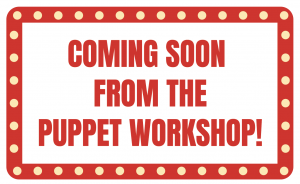
Tío Conejo’s Big Wish
August 30 – October 26
Description
Tío Conejo is tired of being so small. He wants to be big like a goat and strong like a lion! He asks Mamá Diosa to grant his wish, but she thinks he’s perfect just the way he is. She agrees to think about it if he goes on the quest to get the scale of a snake, the feather of an eagle, and the claw of a lion. Join Tío Conejo on his adventure in Fairyland’s first fully bilingual puppet show based on a folktale from Cuba. Script and puppets by Maria Rodriguez. Scenery by Shannon Taylor.
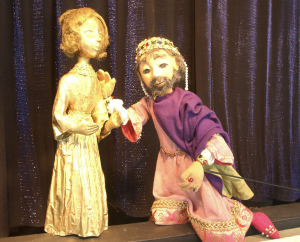
King Midas and the Golden Touch
October 29 – 2026
Description
Do you think you’d be happy if everything you touched turned to gold? King Midas thought so— until things started going wrong, and he risked losing his precious daughter. Join us as the King learns an important lesson in a most unusual way. Sometimes what you wish for is not at all what you want. Puppets designed by Pamelia McIntire. Scenery and script by Lewis Mahlmann. Costumes by Francis Oznowicz.
This project is supported in part by the National Endowment for the Arts.
